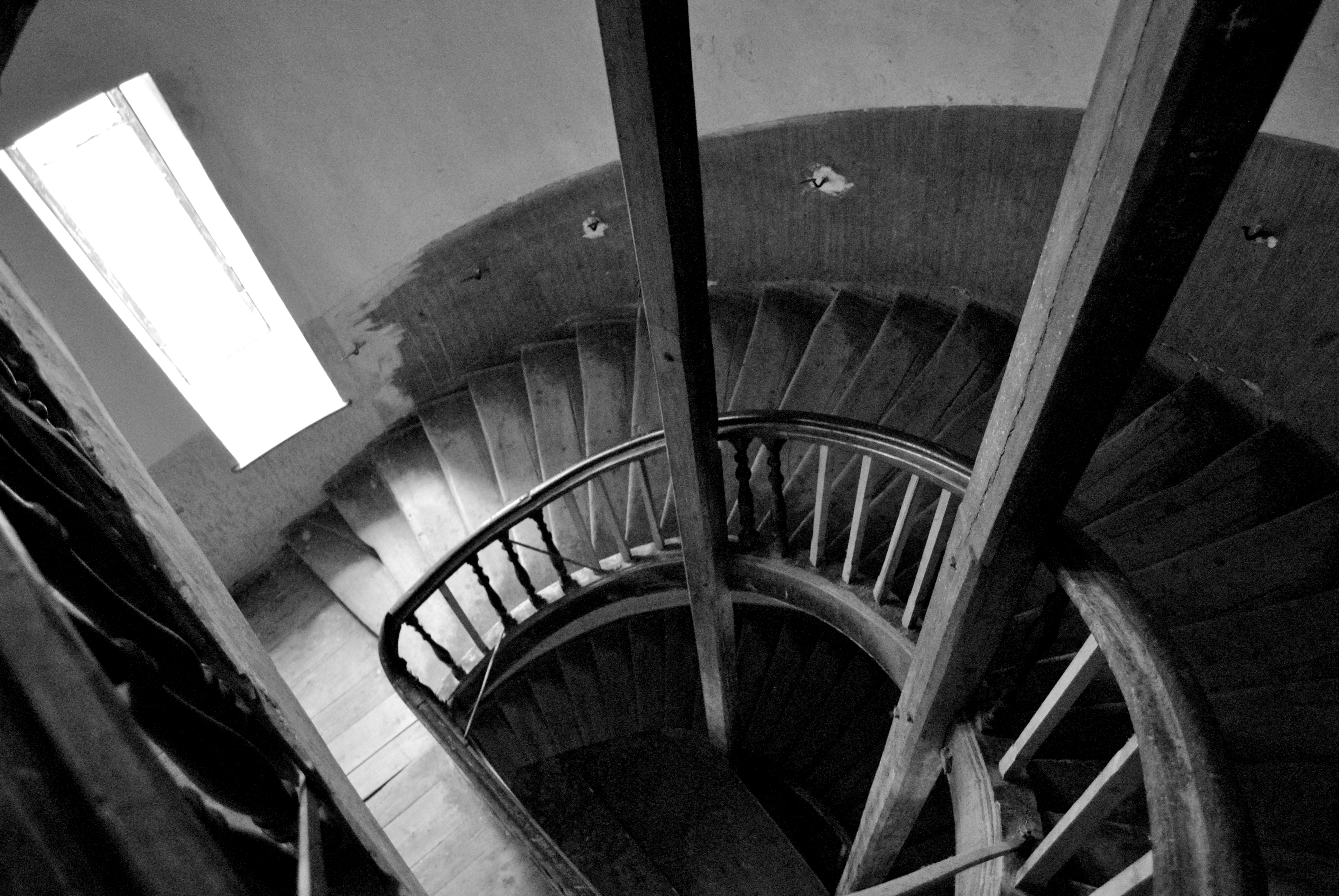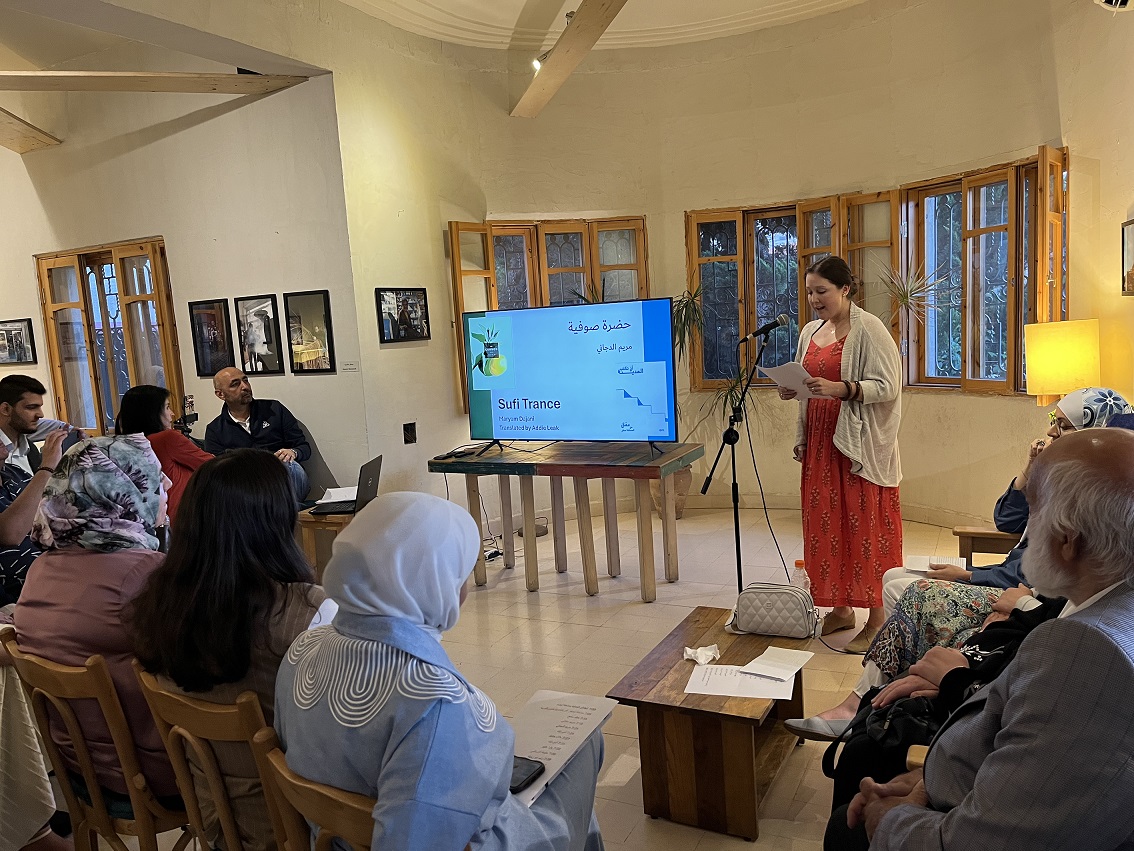By JAMILA AMAIREH
Translated by THORAYA EL-RAYYES
1
I sit on my old chair, scatter my multicolored toys around me, and start watching evening cartoons on TV. Cool Pancho shoots off through the streets in his car, feeling awesome. He’d bought the car back from the old lady living next door. Never mind that he’d paid too much, more than two thousand pounds. No problem. He slows down, speeds up, and finally stops at the green fields to go for a stroll. The episode ends, but I stay glued to the television, waiting for my truly favorite cartoon: The Adventures of Zaina the Bee. Zaina is a menacing creature; she has no other business but instigating pranks on her friend Nahhul. Nahhul, for his part, has no choice but to come crawling back to his bully-of-a-buddy every time.
My mother yells out—over and over—asking me to turn down the TV. I ignore her. I hear her curse what she calls my belated childhood, saying “You’re a thirty-year-old woman. Grow up.” I act as if I haven’t heard a thing.
The cartoons are always colorful and always new, just like my bedroom, which I’ve started to see through different eyes. I walk in, sit behind the old piano, and start to play. I am calm and relaxed (a warm, well-fed child). The music is soft and floats into the distance.
2
I didn’t sleep well. I was thinking about him. It isn’t easy for me to admit, but I am going to say it: he played me. Just like in every story: he cheated on me with another woman. It happened a long time ago, but the wound is still sore.
I was the one who chose to break it off, even before I was sure about her. When he didn’t argue, I started to watch him. I watched him for a long time, until I found her. I knew instantly that she’d end up like me: a victim lured into his trap. He’ll leave her for someone else.
He is strange, this man. His soul will always be unsettled, never at peace unless he has a new woman to ensnare. I don’t feel sorry for him, but I do sympathize with her, poor thing.
We used to argue. It’s normal in any relationship. He’d arrive late to a date we’d planned, or sometimes he wouldn’t show up at all. I used to make excuses for him: the sudden rain messed up his schedule, he was in too bad of a mood to go out, an unexpected visitor stopped him from coming. It was so easy to come up with these excuses, and so impossible to think that this woman existed.
The next day, he’d show up with chocolate and a bouquet of flowers, telling me excuses as he hugged me. He’d kiss my hand and say, “I’m crazy about you. I really couldn’t help it.” I would be quick to forgive him.
I’d have accepted any reason to end things except another woman. He could have told me, for example, that I’d changed and he didn’t love me anymore. That would have been a convincing enough reason to push me away, to silently break me. I would have accepted having that salt rubbed into my wound. But to be lied to like that, while he played the role of a man in love—that is something I cannot tolerate.
He’s delusional if he thinks I’m a woman who’ll swallow all this bitterness without saying a word. I won’t drink from this cup alone.
3
He leaves his house every day at 5:00 p.m.
Not once has he broken this routine; not once has he been late (that’s why it’s so easy to watch him).
He goes to her house to meet her. Something we could never do; we used to spend our time in cafés, in darkened movie theaters, in rented rooms. The time they spend together must be more comfortable, more relaxed.
As soon as he leaves Apartment C in the new three-story building, I ring the doorbell. A woman around my age answers. I examine her face thoroughly. She isn’t prettier than me. I pretend I am looking to rent an apartment and ask if they rent to single women.
“No, no, they don’t mind. No one lives in this apartment but me,” she says casually.
She is alone. That is why he can visit her every day.
“You have the wrong apartment. The one for rent is across the hall,” she says, earnest and helpful.
I apologize with the stealth of a professional burglar and leave. She wants me to live opposite her. How fucking convenient.
4
I dress like I’ve never dressed before: short skirt, cleavage on display, thin high heels. I let my hair flow over my shoulders. I put on a lot of makeup.
My mother is shocked, and the questions start. Then she tries to pressure me: “I won’t allow you out in those clothes. You look like a whore.”
I beg her, try to make her feel sorry for me, plead that I need to take care of something during the next few hours or it will all cave in on me. I tell her that she will be responsible for the consequences if I am late.
She is shaken. Her face pales. “What are you planning?”
“It’s a secret. I’ll tell you as soon as I come back, but for now every minute counts,” I say.
“What kind of secret? What kind of a miserable day is this? You’re going to be the death of me.”
“I promise to tell you when I get back,” I say and run out, leaving her with her worries. It’s my problem; I’ll take care of it myself.
5
I hide under the stairwell in the building, ready for ambush. Darkness has invaded the place and swallowed everything up. My eyes watch out for the street and the door. At first, the beating of my heart drowns out all the other noises: the sounds of speeding cars on the road, of stray cats chasing each other in the night, street dogs barking at one another, the sound of fear of the dark in a new place. As these nighttime sounds become familiar, my breathing returns to its usual rhythm.
Indistinguishable minutes pass, followed by more of the same. Nothing but the dark. Dark time stretches out, expands, thickens.
I fade into all the things around me, and everything melts into the blackness. It all fogs over and my vision blurs. My knees are trembling, my body shivers and sways slightly, my teeth grind against each other. It is not the cold that I feel—it is the pain inside me.
Then fear creeps in from an unknown place. The fear that he won’t come, that I will stay like this: a powerless mouse hiding away. That she will keep waiting for him, worrying that something bad has happened.
I calm myself down and check my pocket. I look up for the tenth time and make out the shape of the stairwell. It’s normal for the windows to light up at this time. The kitchen window will be one of them; I imagine a coffee pot on the stove.
Could he be inside? Could he have sneaked in without me noticing? Is there another door to the building?
Shadows appear. I identify them to affirm that I exist. Between the darkness and light, an arm reaches out, draws a curtain, turns off a light, lights two candles, and turns on some music to fill up the waiting. I wonder if she can feel what is happening here in the dark.
What is happening?
Maybe he called to cancel. But he’s never been late to see her before. Every evening he climbs the stairs quickly, knocks three times (as his heart quickens, I’m sure). She answers in a dress that shows her cleavage, her face smiling and nervous at the same time. He will come.
A strong smell of cigarettes invades the space (he often arrives with a cigarette burning between his fingers). Footsteps come closer in the dark, steady but fast. A strange calmness lands on my heart. My hand feels my pocket for the last time. The darkness is thick and cold and deceptive, but it is not indifferent. It is on his side, hiding him and leaving me exposed.
He passes like an apparition and will soon head up the stairs with the confidence of a fool, his back to me, within arm’s reach. I desperately want to hold him. I stand up. In the dark, I lift my head, my arms. The blade flashes silver, and I bury it in his back. He gasps in surprise, so I do it again in the back of his neck, and then a final stab in his stomach as he turns to face me.
A low, sharp groan comes from inside him.
My groan hides inside me.
He coils himself up between my feet on the stair landing, curling around his pain. Then he falls still.
I fix my gaze on him—a look of goodbye, a look of freedom. But another fear flashes in front of me. Because his eyes stare into mine: confused, questioning, stunned. Is this how a victim apologizes to his murderer? This look scares me. And the last thing he will see of me is the flash of regret on my rigid face.
Except that none of this happened.
It is true that I saw his clean-shaven face pass quickly between the darkness and light, but the face of the man lying here on the floor is one with a thick black mustache, the face of a man I am seeing for the first time.
I turn away and run down the stairs I had climbed up.
I leave him there to his fate. He doesn’t mean anything to me.
It was another man’s destiny that led him, on this pink evening, to this place. Another woman will wait in the light of two candles for a lover who never arrives.
6
Zaina the Bee is teaching her friend Nahhul how to fly. “Come on, Nahhul, focus. Follow me. Do exactly what I am doing. Don’t be afraid, flap your wings first, like this, then jump into the air.”
“Let’s try it now, Nahhul.” Zaina flies, and Nahhul hesitantly follows her. As he flies higher, fear sets in. Zaina flies closer and encourages him, telling him he won’t fall if he starts to get the hang of it.
Nahhul is unconvinced. His fear multiplies, and he yells out, “Please, Zaina, I am going to fall!”
And from that height, he drops and falls onto his face, screaming in pain.
Zaina comes closer and says, “You did well today. You flew just like I do, kind of.”
“But, Zaina, I fell and got hurt.” Nahhul complains.
Zaina laughs and says to him, “It happens, Nahhul.”
Then she adds, “We will try again.”
[Read more Arabic fiction in Issue 11: Tajdeed.]
Jamila Amaireh is a novelist and short story writer who is known for killing off her characters, especially the men among them. Her work first gained popularity in the 1990s, a period known for the emergence of several prominent women writers in Jordan’s literary landscape. Amaireh is the author of six short story collections and a novella. Her work has been translated into English, German, French, and Kurdish.
Thoraya El-Rayyes is a Palestinian-Canadian literary translator and political sociologist living in London. Her translations of contemporary Arabic literature have received awards from the Modern Languages Association and the King Fahd Center for Middle East Studies at the University of Arkansas. Her work has appeared in publications including World Literature Today, the Kenyon Review and Words Without Borders.




